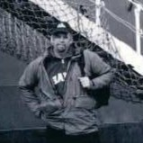John Loxton - Hundreds are worth fighting for
Dean Tuckwell | February 17, 2023
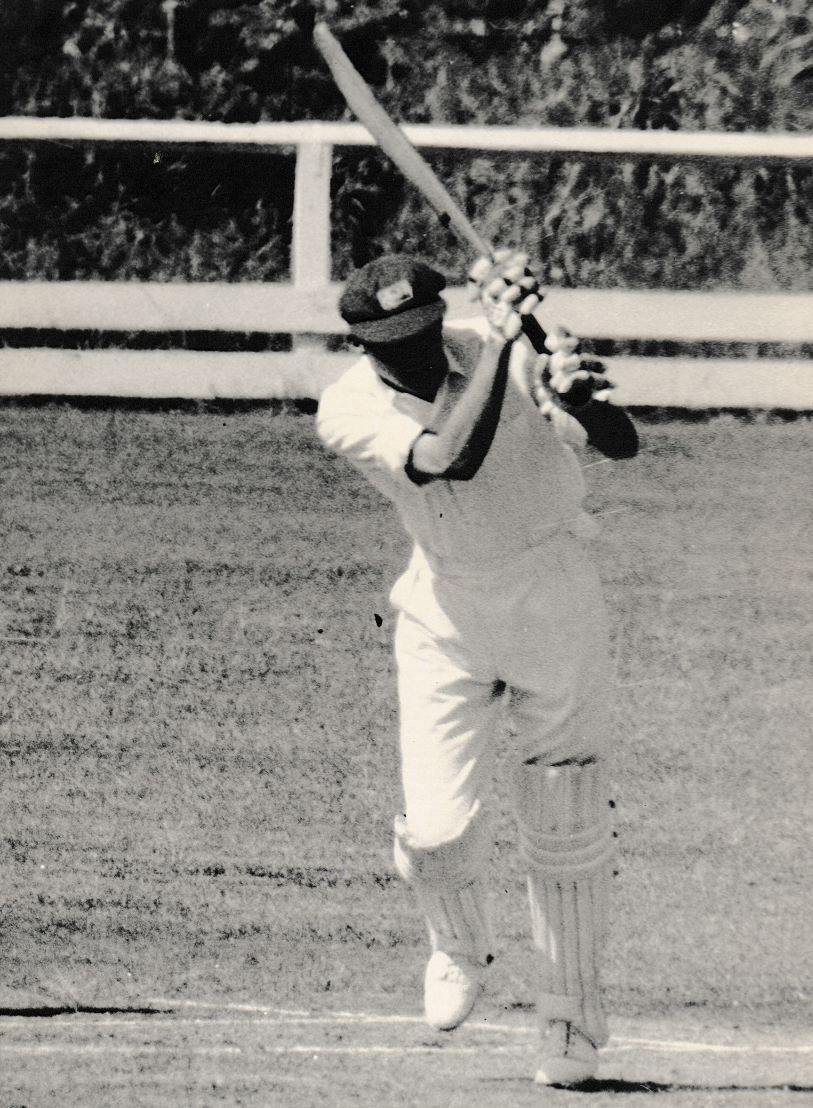
John Loxton virtually had two careers - one up until July 1969 and one after. In the former he was a hard-hitting opening batsman for Queensland who scored 100 in his first Shield innings against a test-strength Western Australian attack in 1966. He scored a second in 1968 against a NSW side brimming with test players but was then struck a devastating blow to the head whilst batting in a match at Old Trafford the following year. That he was able to work his way back into the Queensland side for another 5 matches is testament to his skill & determination
The near-death experience prompted John to reassess his priorities and whilst he continued playing first grade until 1978, cricket never had quite the same importance as he focussed on family and forging a successful business career. His is a great story from a time before helmets & big pay-packets.
What year you were born?
1945
Can you remember you first game of cricket?
At 8 years, I opened the batting for Indooroopilly State School Under 12’s and was bowled first ball. Dad was devastated as he had been coaching me since 4 years old, had taken time off work – a major loss in those days.
Tell us briefly about your cricketing journey? Where you’ve played, clubs you’ve played for?
Played for Indooroopilly State School – 1953 to 1957, Toowoomba C of E Prep School in 1958/1959, BBC 1960 /1963, Wests Under 18 1959 to 1963, Wests third grade and Reserve Grade 1963/4, WESTS Reserve grade and A Grade (up and down) 1964/5, QCA Colts 1965/6/7, captain Queensland Colts XI 1966, Queensland Sheffield Shield team 1966/1971, Hampstead Cricket Club (London) 1968/69 and 1972. Leicestershire 2nd XI and Northamptonshire 2nd XI 1968/69. Wests 1973/1976, Captain QCA Colts in 1976/1977/1978.
In which grade and at what age did you make your debut in grade cricket?
12 – Under 18, at 13 in under 18 (Intermediate grade) as an opening batsman. In shorts, sandshoes – all the others were in long trousers and spikes - and scored 53 after the first ball went over my head and landed in the hedge on (then) Graceville No 3.
At what age did you make your first grade debut in grade cricket and can you remember how you performed in debut?
I962 – as a replacement (I had been on a RAAF cadet promotion assessment to Sergeant in the BBC Air Corps). Went in with George Negus at 9/35 on a wet wicket, scored 0 not out and we made 49. Wynnum Manly was 8/ 47, I took a catch at short leg slip, and we were beaten by 2 runs. Jack McLaughlin was the captain.
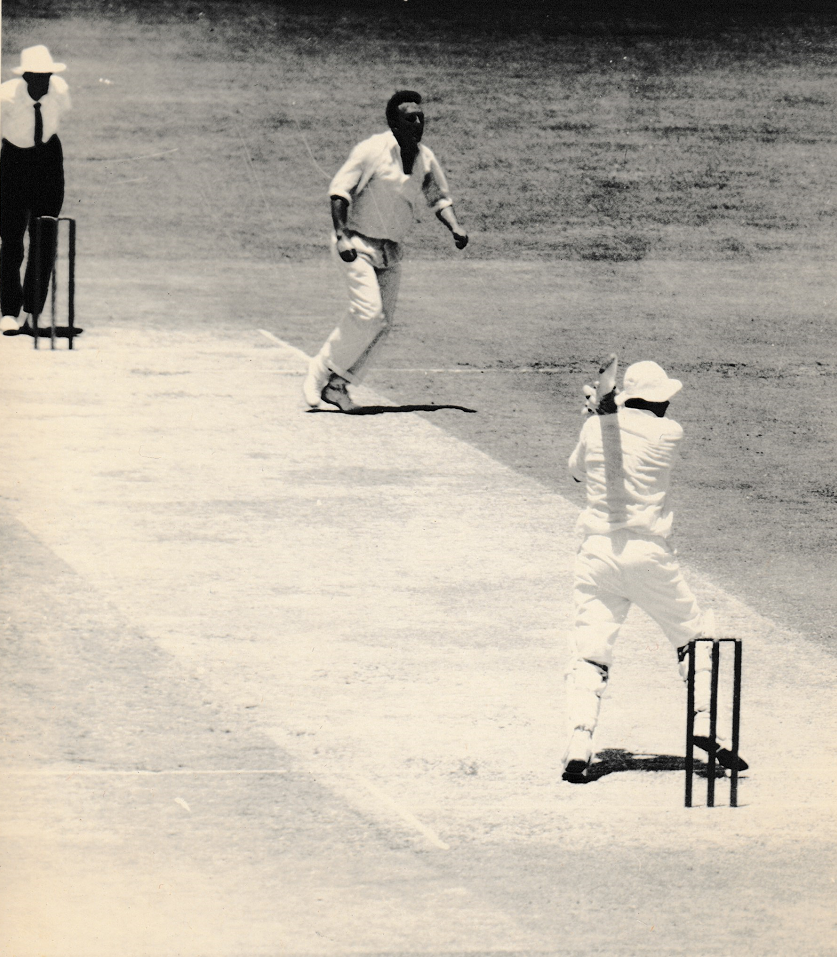
John Loxton cutting John Grant 1967
You suffered a serious head injury playing for Northamptonshire 2nds at Old Trafford – can you please share the story?
At Old Trafford, v Lancashire 2nd XI, the wicket was “lively” and our opening bowler Sarfraz Nawaz (who went on to be a great Pakistan Test bowler) had already put Barry Wood (who later scored 90 opening the batting against Lillee & Massie in the 1972 Ashes) in hospital after hitting him in the neck.
When it was our turn to bat, I was warned by our blokes that their opening bowler had played under 19 and 20’s for England and was quick. First ball was short which I pulled to the mid-wicket boundary. It was here that I made a mistake by smiling at him (as you did in Australia to rile the bowler), and automatically ducked the next one – again which was also normal in Australia. The bowler however was not an Aussie, bowled a quick good length ball, and hit me square on the top of my head, creating a 1 inch depressed fracture in the shape of the ball. I was felled, and even experienced the floating up sensation and I remember knowing I would die, as I felt my right hand spasming. I even remember clearly feeling sad at the thought that I would not see my mother again. That is fair dinkum.
Most fortunately, The Manchester Royal Infirmary was only a short distance away and contained a specialist neurosurgery unit. They operated on me within 15 minutes of the accident and I woke at about 3.00am having only suffered a frozen right hand. I returned to Australia, played a few more Shield matches, but was never the same player again, retiring after the 1969/70 Southern tour. My mother said it was the best thing that could have happened to me as otherwise I would have been a cricket bum at 30. I returned to UQ, continued to play A grade – albeit at a reduced skill - and have treated each new day as a bonus.
You played 1st Grade cricket with George Negus at Wests in the 60s. What are your recollections of him as a player and did you have any idea that he would become an Australian icon?
George was in my elder sister’s class at Indooroopilly State School. He was a good keeper, VERY cerebral, played Qld schoolboys XI, and was an idol. It may not be common knowledge, but George was dismissed from the Queensland Education dept after “ÏNCITING” a riot (in fact only a questioning of Department rules) at, I recall, maybe Inala State School. Subsequently, when he had the seat out of his pants and I was in Melbourne in 1967/1968, George stayed with the Qld Shield team at Housies Hotel in Flinders Street, sleeping on a couch. George was always popular with us all, although we did not understand – or question - the status quo at that time.
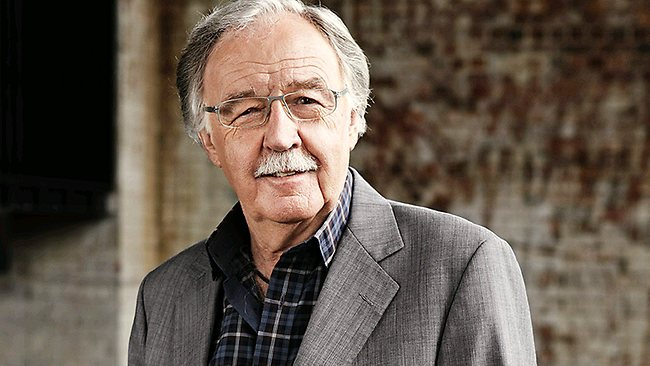
George Negus
What was your highest score in senior cricket?
I scored 200+ against Qld Country in 1966, which propelled me into the Shield side but only after Bill Buckle broke his arm v Victoria.
What were your best bowling figures in senior cricket? For which club and where?
Nil!
You played Sheffield cricket in an era that saw the emergence of some of the greats of Australian cricket. What are your memories of playing against the Chappells, Lillee, Marsh & Walters?
I played against Greg Chappell in my second game for Queensland when he was in his first couple of games for South Australia. He was 18 and I was 21 & in those days as juniors in our respective sides, we spent some time off the field during that game, were comfortable with each other and became friends. He was always a pleasure to play against – a real gentleman. Later in life when he came to Queensland, that friendship was solidified. With regard to the others, I played against Doug Walters a couple of times and he was also a wonderful person – simply a genius. Took me on a sensational catch in slip in 1968. Marsh was playing as a batsmen for Western Australia and I didn’t take much notice of him whilst Colin Milburn was scoring 180 in a session – and Western Australia compiled the usual 600+. I only played against Dennis Lillee once after I had been injured and remembered that for the first time an opening bowler started abusing me after I missed a couple in the first over. He moved aggressively towards me and from 1 metre yelled “I’m going to kill you” to which I replied “go right ahead son keep trying”. I was so staggered that although I scored 50 odd in that innings, it soured my attitude to the pleasantries of playing, and retired from first class cricket after that tour.
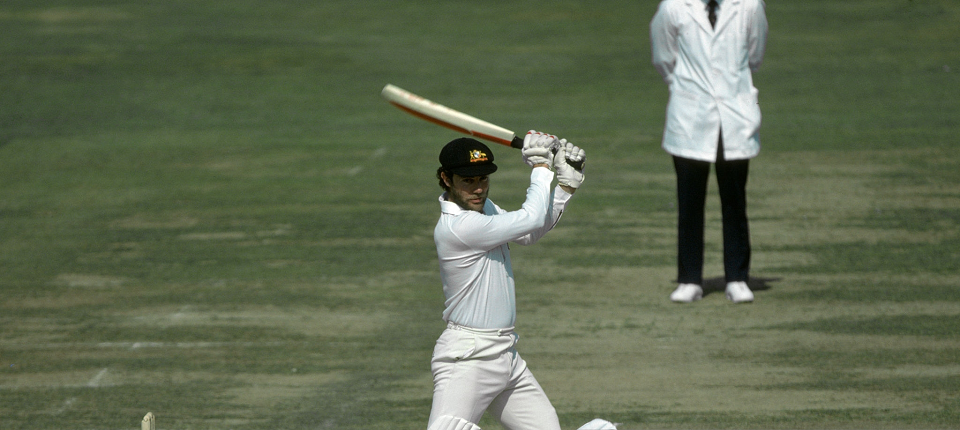
Greg Chappell
What was the biggest impediment to Queensland winning the Shield in those years?
People forget that we played a couple of home games in October and November then travelled for a non-stop four game Southern tour which included Christmas in South Australia in days when Sunday cricket was not played in most states. Married players never celebrated Christmas with their families, rather a lunch with teammates in paper hats. Final home games were held in January and February which were often affected by rain and cyclones. In 1968/69, Qld were close to winning the shield but weather intervened, and bloody Greg Chappell scored a century in both innings at the Gabba.
There is a legend of your first Shield hundred in Perth – what is the real story?
I was 30 not out at stumps on the 2nd day, WA having declared at tea 7/554 with hundreds to John Inverarity & Murray Vernon after Colin Milburn had belted us for a century in the first session of the match. I was in the 90’s when joined at the crease by Bob Crane after Peter Burge retired hurt with a strained back. I was buggered by this stage having been on the field for over 2 and a half days and in an effort to maintain concentration started counting my score. Bob was run out and not long after I was relieved to take a 2 to bring up my century. The next ball from Colin Guest was a peach – perfect length on off stump, hit a crack, moved away and caught the edge. Off I went, still surprised the board showed 99. When in the shower, Peter Burge came in and said everyone thought I had the 100, and that Bob Crane stated he had scored only 1 yet was credited with 2.
Peter, Bob and I explained the situation to the scorers who noted that only 7 balls had been recorded in that over (8 ball overs), corrected the error and I had my first Shield hundred.
That is the true story, but over the years, the myth grew that, as a talker, I had browbeaten the scorers and it was with great amusement opponents would remind me of it when we met.
Who were the best three fast bowlers you have played against?
Graham McKenzie was the fastest and best bowler I’d ever played against. In 1967/68, he had taken 19 wickets in the first two tests against the Indians and was dropped for the third and fourth tests because the selectors apparently wanted to see who could support him in the 1968 tour to England. We played in Western Australia and he was very cranky. My opening partner Sam Trimble’s advice was to be very careful with McKenzie because normally moved his front foot only about three quarters upwards on his delivery stride and this was just quick, but usually a good length. Sam advised that when his front foot rose to his head height – look out – it was going to be super quick and either a Yorker or bouncer at your chest. He was right. That day, he bowled every ball with his front foot raised to his head and this was in the time before helmets. I remember thinking Goddamn the keeper- Gordon Becker - is back 23 metres and if I don’t see the ball in the first metre, he is going to catch my head. Graham hit me on the inner thigh three times in one over and, on the third time I went down. I remember Graham – who was a very pleasant fellow – coming up asking if I was all right and although I told him I was OK, the next ball was just as quick. He was a great man, a great bowler.
The next best bowler I ran into was a bloke called Mal Stenning who opened the bowling for New South Wales Colts when I was captain of Queensland Colts in 1965. He was desperately quick – like Jeff Thomson - and sconned one of our batsmen Nev Brockie on the head. I thought he was faster than Graham McKenzie but maybe not. People forget how dangerous it was in those days but when you’re young you don’t even think about getting hit, although every third or fourth A grade game ended with someone being “Pinned” and ending in hospital, or the dentist.
The third fast bowler would have been Alan Frost who opened for South Australia in 1966/67. He was seriously quick and you needed every advantage you could have and all your skill to keep him out. He unfortunately injured himself the next year and really only played another couple of games after that.
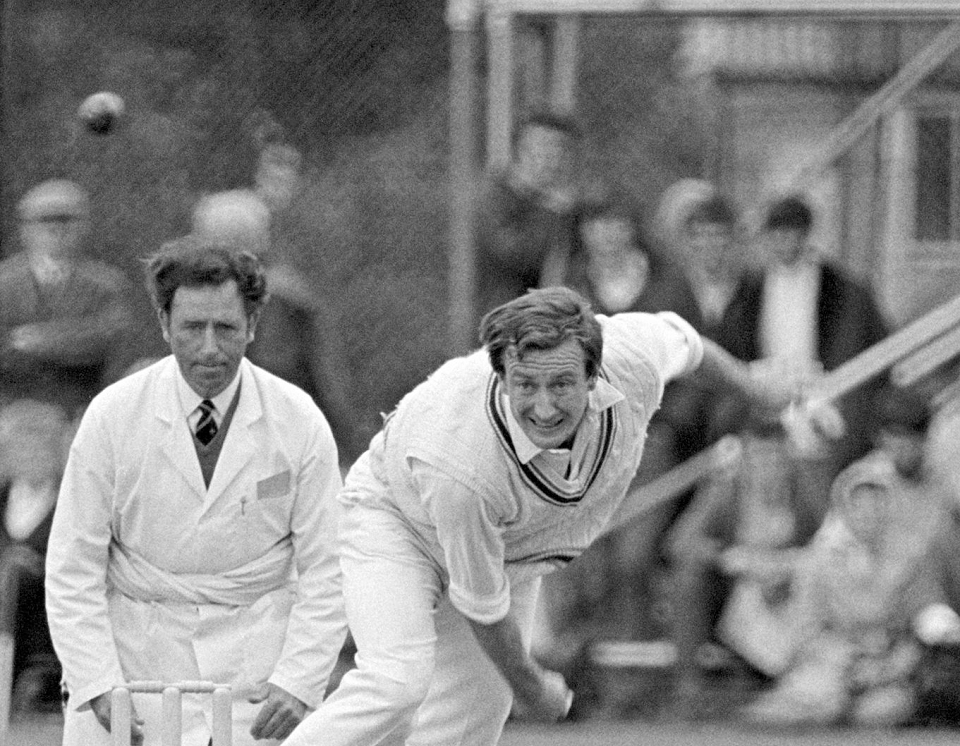
Graham McKenzie
Who were the best three spinners you have played against?
NSW’s John Gleeson was undoubtedly the best because up until that time you could always tell the ball’s direction by checking his wrist and the seam through the air. With Gleeson, I first played him over a few gloomy days at the Sydney Cricket Ground in 1966/67 after the top of the pitch had been scoured so it spun square. I can remember after seeing the opening bowlers off, he came on and bowled out of the front of his hand and, whether the seam was pointing towards leg slip or pointing towards gully it would spin either way. The seam was perfectly straight and was bloody hard to check out which way it was going to spin so inevitably I was pressured to play back when I wasn’t sure and was out LBW in the first innings, and caught by the keeper in the second for about 20 odd both times. Thankfully, the time I played against John was a bright sunny day at the Gabba, and he had slightly lost the strict seam, with the seam movement allowing me to predict a leggie, googly, or top spinner. I got a century and beat the living daylights out of him. Very satisfying after the humiliation of a couple of seasons before.
Tony Lock was the outstanding left hand finger spinner of the age, both attacking and defending. He added great humour and sportsmanship. I played a number of matches against him and enjoyed them all. A great player.
Jack Berkinshaw from Leicestershire. Jack really “ripped” the ball with his offspinners and spent a lot of time in the nets correcting my technique against him.
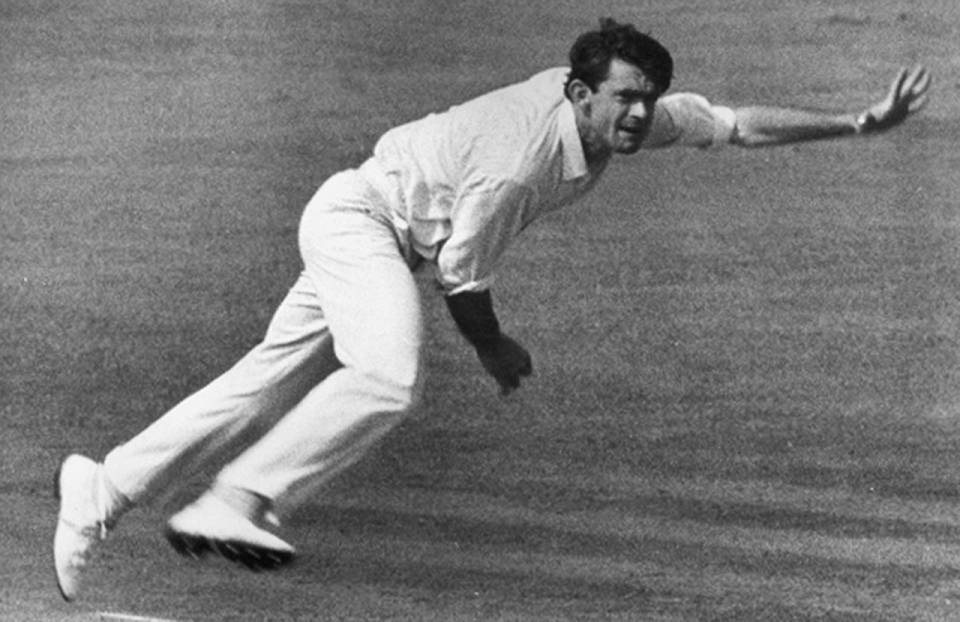
John Gleeson
Who were the best batsmen you’ve played with or against?
Undoubtedly the bravest player I ever played with was Sam Trimble, Wests’ greatest ever player. Sam gave a great confidence to his partner and never looked nervous before an innings for Queensland. Once, when we played New South Wales in 1968/69, he took a hit on the hand in the first over from David Renneberg. When I asked him at the over’s completion how he was Sam said it had broken his knuckle but would bat on and give me singles. At lunch we were none for 100, I was 70 odd and Sam was 25. At lunch in the showers, Sam had not taken his glove off and covered his injured hand with a plastic cover so he could keep batting but was told by one of the officials that he could not continue which upset him greatly. He was a great man and always proud to play for Queensland.
Peter Burge was undoubtedly the most talented player I had the pleasure to play with. He could destroy any attack if in the mood, and granted you great confidence when you’re playing with him.
Brian Davison who was an ex-Zimbabwean I played with played with in England. A brilliant batsman and nearly came to live with me and my parents in 1969 after I was injured. If he had, he would have played for Australia for many years.
Colin Milburn (Northamptonshire, England and Western Australian opening batsman). In my first Shield match for Queensland, he scored 100 before lunch, and, a few years later, 240 by afternoon tea (180 in the second session). Great player.
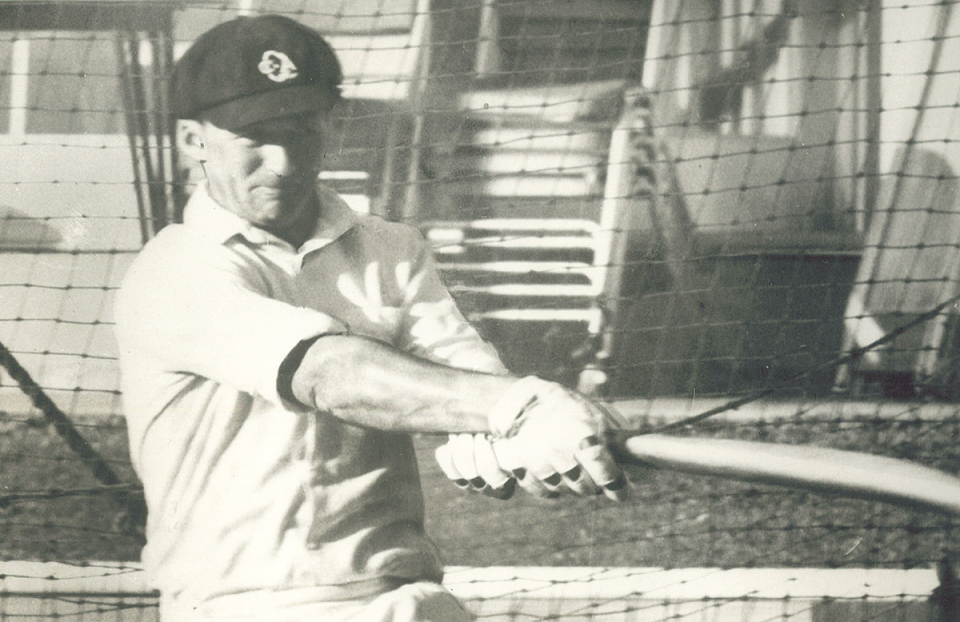
Sam Trimble
Who played the best innings you’ve seen firsthand? And if you could add a few words as to why?
Peter Burge had retired and Queensland had experienced a poor Southern Tour in 1967/68. The selectors requested Peter to come back for the last game - which he did. We were 2/40 odd when Peter came into bat with me. Western Australia fast bowler Laurie Mayne’s 1st ball to him was a great bouncer that flew off a good length and nearly took Peter’s head off. Although the middle of the over, I walked down the wicket to ask if he was okay as he looked a little shaken. Although he was as white as a sheet, realising this was serious cricket, he said he was. The next ball was short, just as nasty and Peter dispatched it over the fence to land next to the Scoreboard. He then proceeded to get a century and was out the next ball. He was so brilliant it was extraordinary; in fact I can’t remember a home grown batsmen close to him except for Greg Ritchie.
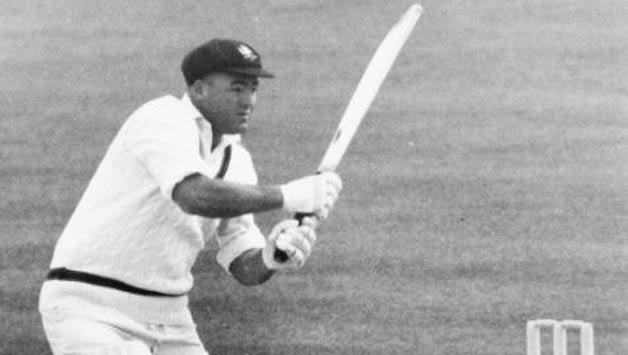
Peter Burge
Was there any batsman in particular that stirred the emotions and competitive spirit where you really wanted their wicket?
No. I wanted them all out, but always had a soft spot for Greg Chappell.
Who was the best wicket keeper you’ve seen firsthand playing with or against?
John Maclean was outstanding for Queensland. We had known each other since we were 12 years of age, and were firm friends from 18 until now. I still think that John Bell – who Macca initially beat for selection as keeper for Queensland – would have been just as outstanding. “Dinga” was a real scrapper, an excellent competitive cricketer who never give up and would have scored many more runs than Macca if given the chance.
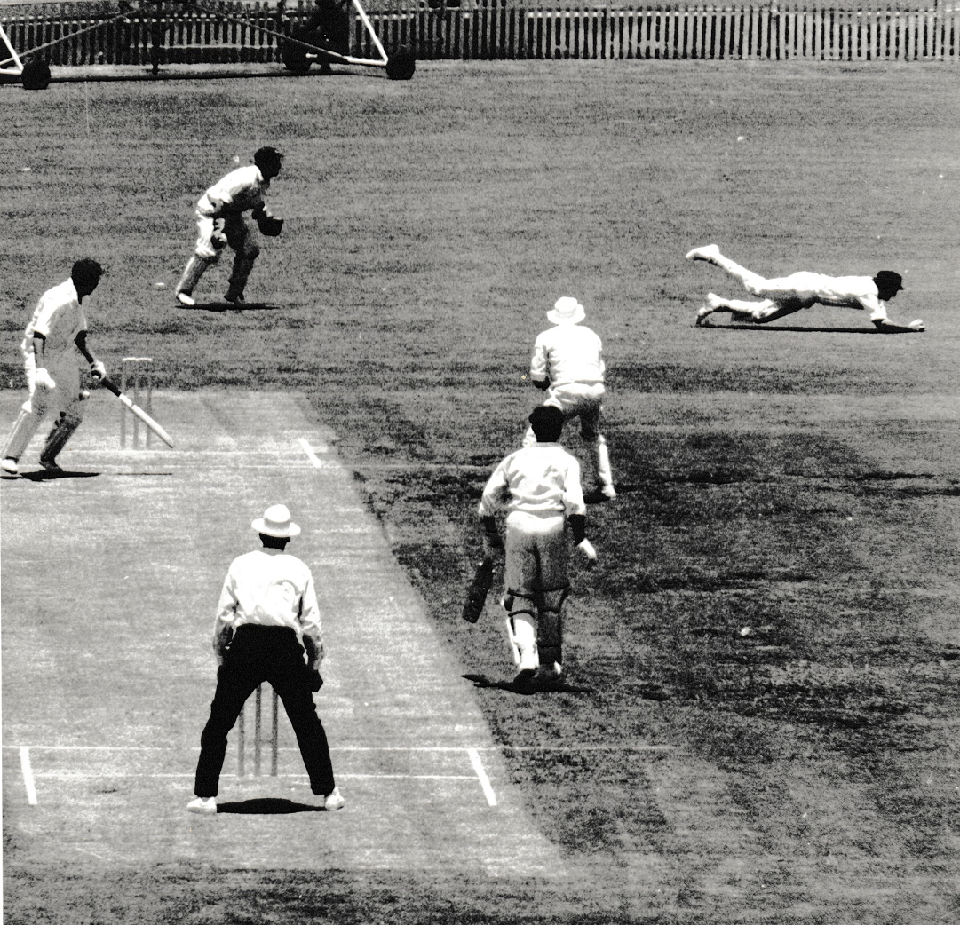
Bruce Francis caught John Loxton bowled King. John Maclean wicket keeper
Who are the two players you admired most in terms of skills and competitive spirit in the competitions you played?
Sam Trimble and Jack McLaughlin stand out. Both competitive, but always fair.
Who was the best captain you had the good fortune to play with?
Jack McLaughlin was the most outstanding captain I ever played with. Jack captained QCA Colts when we were a team to make up the numbers in A grade comprised of players the clubs didn’t want. We won the premiership in 1964/65, and still have an annual luncheon with Jack – he is 91 years of age as we all appreciated what great assistance he gave us in the way we became men.
I learnt a lot from Hampstead Cricket Club (London) captain Nicholas Alwyn. Nick captained the club in 5 straight seasons to win the London 45 over competition each year and in 1969 led us to the inaugural National Knockout Cup from 426 teams. He and I opened the batting as he taught me to appreciate the beauty of game more so than before. His mantra was at least 80 runs in the first 20 overs (no more than 2 wickets down) then flog the bowlers. His control of the bowling attack and field placing was almost symphonic. His nickname was Gruppenführer, and was respected if not loved by all, but was certainly by me.
Who has been your funniest team mate?
There were many. Sandy Morgan stands out while playing for Queensland. Quirky fellas would include Peter McWhinney who came into first grade at 18 years of age when I introduced myself and asked him what he preferred to do, he said he “opened the batting, opened the bowling and fielded at first slip”. I advised I would keep that in mind but it may be too much for us to start with. After a few games, Peter decided to start playing professional golf at which he is very successful – I have enjoyed a lot of company with him subsequent to his brief career at Wests. Peter was a fabulous bloke and still is.
Can you recall some banter or an exchange on the cricket field that still makes you laugh today?
My first game for Queensland, when the experienced Western Australian batsmen Murray Vernon was hit on the cheekbone by Sandy Morgan and I caught it at leg slip and appealed – not knowing whether he had hit the ball or not. As a senior player, he proceeded to berate me with very colourful language for trying to cheat etc. which was upsetting for me as a newby. Lew Cooper whom I had never met before ran up to Vernon and said don’t you talk to my friend like that. He is just a junior player and you should not complain about what he’s doing. Maybe not funny, but memorable as it made me feel part of the team.
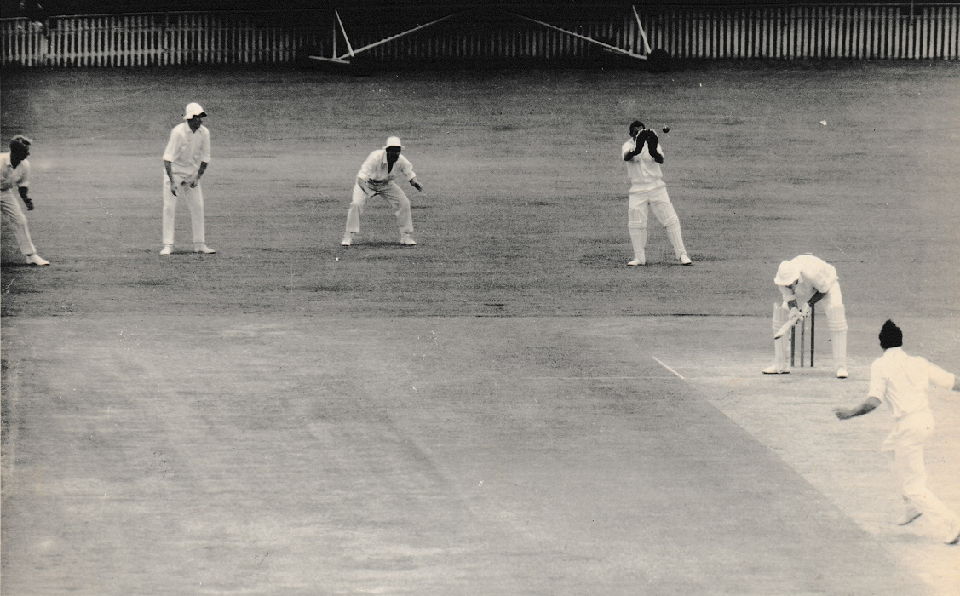
John Loxton duck a bouncer from Victoria's Allan Connelly at the Gabba in 1967
What was your most embarrassing dismissal in senior cricket?
In the second innings of my first Shield match in Perth, I went to hook the opening bowler, missed, and collected it on the follow through. Colin Milburn dived forward in first slip and caught it.
Who were your childhood heroes?
The usual – Don Bradman, Peter Burge, and my father who had played a couple of games of Queensland. He taught me the game, spent a lot of time with me, fought as a pilot in the Second World War, became a squadron leader in the RAAF, carried a bullet in his knee for 50 years and never complained. He was a rock.
Who are the three sports people in the world you’d most like to run into again?
Mike Brearley (England Captain) who I briefly met in 1972. John Howard (Sports tragic) – who I had briefly met at the Avondale Golf Club, and to meet George Negus again because he was a very intellectual person, went to the same state school as myself, and created a great career.
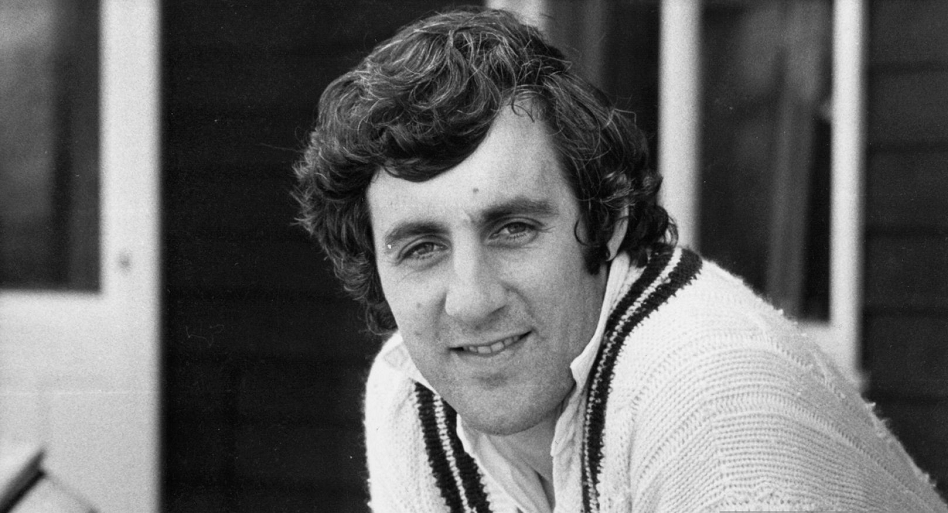
Mike Brearley
Who’s your favourite cricket commentator?
Alan McGilvray
What was your favourite ground to play at?
The WACA.
What there a particular team you especially looked forward to playing against?
Norths cricket club. I had a lot of friends there, and they were led by Michael Lucas. The team was the strongest in the A Grade competition at that time, competitive but fair. I remain friends with number of those players and while they were probably more successful than Wests were, I’ve always enjoyed the competition against them.
What do you enjoy most about playing cricket?
My teammates – especially those who never gave up, because those who did, I could never respect. That pertained also to whether it was playing for Queensland or for Wests.
What’s been your most memorable moment in cricket?
Scoring a century for Queensland after returning from the expensive risk of playing in England in 1968. I was very nervous about getting picked again for Queensland after not having excelled in club cricket but getting a 50 in a trial game just prior to the initial shield match of that season. I don’t think I ever batted better against a great bowling lineup from NSW – Test bowlers Renneberg, Corling, Gleeson, Walters, and others and should have probably got 200 that day. I was so happy for my parents who had supported me throughout my career especially for my dad. A great day and I remember a photograph taken by the Courier Mail as I was leaving the field waving my bat to my parents which I treasure.
What’s the best win you’ve been involved with?
In 1968/69, we lost in the first innings against Western Australia in Perth by a couple of runs yet beat them outright by a wicket or two. I can always recall previous to that Western Australia had been a great side to play against - very friendly - but when we beat them not only would they not talk to us and really gave us a very hard time after the match, closing their door and damaging their changing room. Graham McKenzie was their only player to come into our dressing room. It was disappointing because up until then, cricket seemed to be a competition of two teams who enjoy themselves after the game. It was very disappointing for Western Australia to take that attitude.
Who are the three players from your playing days at the top of the list for a Saturday afternoon barbeque?
I don’t think I can limit it to three players as I always enjoyed everybody’s company after a game. In those days – unlike today, the game was very social, was very regional as you could only play for your local club if you lived in an area and could not transfer to other clubs. Now people move from club to club and seem to be thinking about what’s best for them, not the team.
What are your hobbies?
At 76 years of age, my commercial life is over so I play golf, enjoy life with my wife, my children and grandchildren.
What’s the best advice you’ve received?
You don’t score runs off the field – Jack McLaughlin.
What was your career post-cricket?
I work in finance, consultancy, property development and was reasonably successful.
If you were running Cricket QLD what would be your 2 priorities to ensure cricket in the state remained strong and successful on and off the field?
I am too old to offer a reasonable opinion, is current thinking is completely foreign to me. The game is simple. Support the players, support the clubs, support the schools.
?








